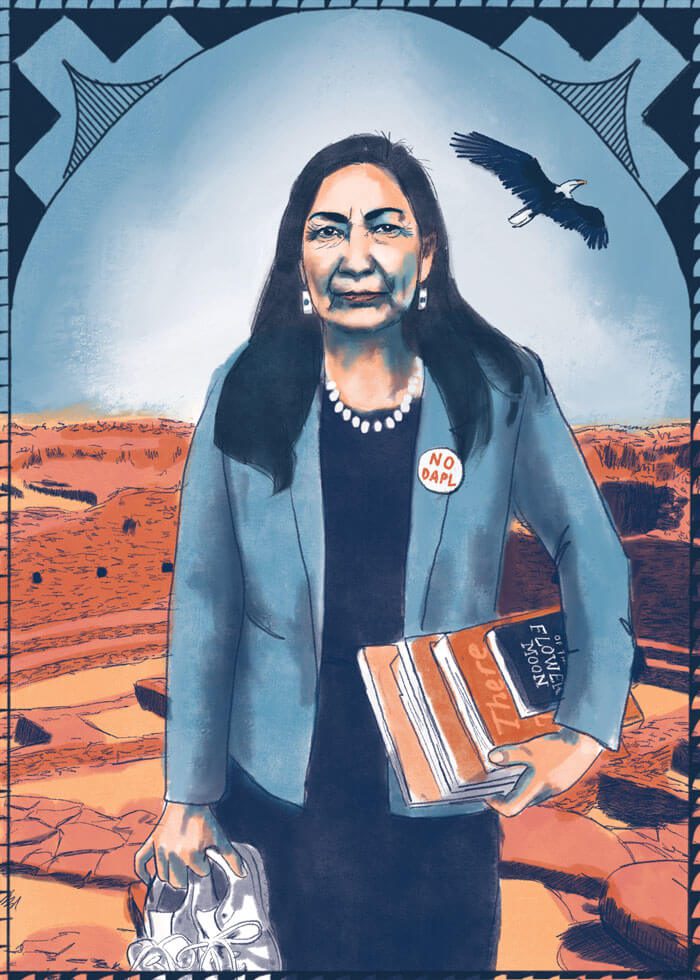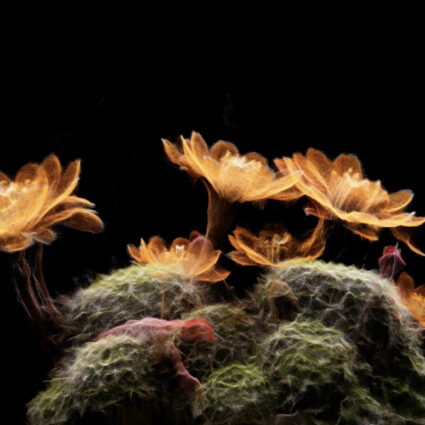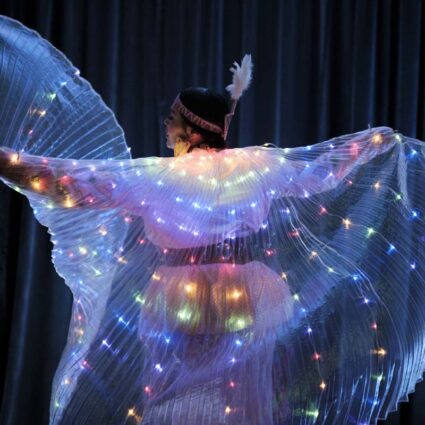Name: Deb Haaland
Born: 1960, Winslow, AZ
Lives: Albuquerque, NM, and Washington, DC
role: First Native American woman elected to Congress
quote: “Congress has never heard a voice like mine.”
This week, an image from the February 2019 issue of Vanity Fair has been circling my social-media feeds. It features six newly elected Democrat representatives who headed to work in Washington, DC, in January to try to wrest the country back from the clutches of Paul Ryan. Alexandria Ocasio-Cortez, Ayanna Pressley, Ilhan Omar, Veronica Escobar, and Sharice Davids pose—not unmenacingly—on the House floor, and at the center of the photo sits Representative Deb Haaland (Laguna Pueblo). Rep Haaland’s demeanor in the photo is fierce yet kind, the exact, impossible combination of feelings a woman politician has to strike to be elected in this country.
Representative Haaland, who has been interviewed in Rolling Stone and just about every news outlet you can think of, is still paying off her student loans and speaks openly about having received food assistance in the past. Her campaign placed her own struggles to support her family as a single mother at its center, never shying away from New Mexico’s high poverty rate. While attending the UNM School of Law, Haaland started a small business making salsa, which enabled her to care for her daughter while earning a living. When I asked how and why she got started in politics, expecting to hear a typical politician’s résumé, she replied, “I started out as a phone volunteer, because I wanted more Native Americans to vote.” Phone banking led to “organizing in Indian Country” for Diane Denish’s gubernatorial campaign in 2010 and for both of President Obama’s campaigns. After running for Lieutenant Governor and Democratic Party of New Mexico State party chair, she ran for Congress. Starting with the phone bank, she believed that New Mexicans “deserved a strong voice” and didn’t have one at the national level.
‘My favorite thing about New Mexico,” she told me, ‘has to be the resilience of the people. But I also love our over three hundred days of sun per year.”
Congresswoman Haaland’s love for New Mexico runs deep. As a member of Laguna Pueblo, she has a connection to the land that reaches back to the 1200s, when the community first arrived here. Her investment in Native rights, activism at Standing Rock, and support for protecting Chaco Canyon are all rooted in her personal connection to the state. “My favorite thing about New Mexico,” she told me, “has to be the resilience of the people. But I also love our over three hundred days of sun per year. The many running trails that I have been so fortunate to experience. I love the drive up to Taos—along the river, where I have seen bald eagles and rafters enjoying nature. I love our old architecture and New Mexican food—because no other place in the world has it. I can wake up every day and see something more to love about New Mexico, which are all my favorite things.”
When Rep Haaland isn’t running marathons or posing for Vanity Fair, I was delighted to learn, she is an avid reader. Her Twitter profile describes her as “one of the first Native American women elected to Congress. Pueblo woman. Single mom. Marathon runner. Non-fiction reader.” Knowing that she majored in English, writing most of her papers about her grandmother’s life, I asked Congresswoman Haaland what she has been reading lately. “The last two good books I read were Killers of the Flower Moon: The Osage Murders and the Birth of the FBI, by David Grann; and There There, a novel by Tommy Orange. The FBI was essentially started by solving murders in Indian Country. I think the FBI can solve the missing and murdered Native Women crisis. Tommy Orange gave a heartbreaking account of urban Indian life in Oakland, CA.” Rep Haaland also happens to be a champion for Native women, LGBTQ issues, the environment, divestment from oil and gas, Medicare for all, and dismantling ICE.




